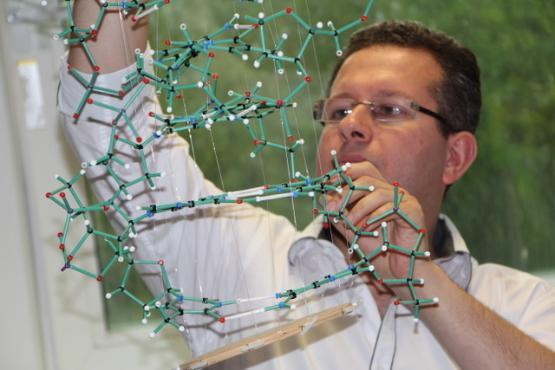Zebrafish yield DNA clue to longer, healthier life
Scientists discover possible way to protect adult DNA in later life

Scientists from the University of Bradford may have discovered a mechanism which protects adult DNA from degradation, by studying zebrafish.
The findings could make diseases like cancer and dementia easier to treat.
Studies of the popular aquarium fish - whose genome is very similar to that of humans - looked at how so-called ‘DNA breaks’ caused by things like disease, the treatment of diseases such as cancer, poor diet and other external factors, are repaired by the body.
What did they find?
Researchers discovered a marked difference in how the process of repairing broken DNA works in early and later life and subsequently identified a ‘pathway’ which might help better protect DNA in adulthood.
The findings are published in the science journal Science Advances. Lead author Professor Sherif El-Khamisy, Director of the Institute of Cancer Therapeutics in the Faculty of Life Sciences, at the University of Bradford, said: “Protecting the genome from damage is critical to prevent diseases associated with ageing such as cancer and dementia. Scientists use cells to study how this protection process takes place, but it is often difficult to study at a whole organismal level. Here, we removed an important genome protection pathway in fish and examined its impact across the lifespan.
“Protecting genomic integrity is fundamental to prevent disease, especially diseases associated with old age such as cancer and dementia. Thus, understanding how these protection mechanisms occur is important.”
What are the next steps?
The next step is to use the zebrafish models generated in this study to screen for drugs or dietary supplements that could promote a healthier life at an old age. Scientists will also look at the role played by certain enzymes in the repair of DNA.
Professor Sherif El-Khamisy’s research is focused on how DNA is repaired after damage, a process that is critical to preventing both cancer and neural degeneration, both of which can result in health problems associated with ageing.
Professor Sherif El-Khamisy’s research is focused on how DNA is repaired after damage, a process that is critical to preventing both cancer and neural degeneration, both of which are health problems associated with an ageing population.
Additional information
Prof was appointed as the director of the University of Bradford’s Institute of Cancer Therapeutics (ICT) in August. The ICT houses a number of multidisciplinary research groups working together to research, develop and commercialise new treatments. The work spans fundamental discovery science to identify, refine and validate new targets, synthetic and medicinal chemistry, pre-clinical pharmacology, molecular biology, drug metabolism and pharmacokinetics (how the body interacts with a drug), drug formulation and proteomics (the large-scale study of proteins). It is one of only a few centres in the UK with the research tools and expertise in-house to progress medicines and biomarkers (used to measure the severity of a disease) from concept to clinic.
